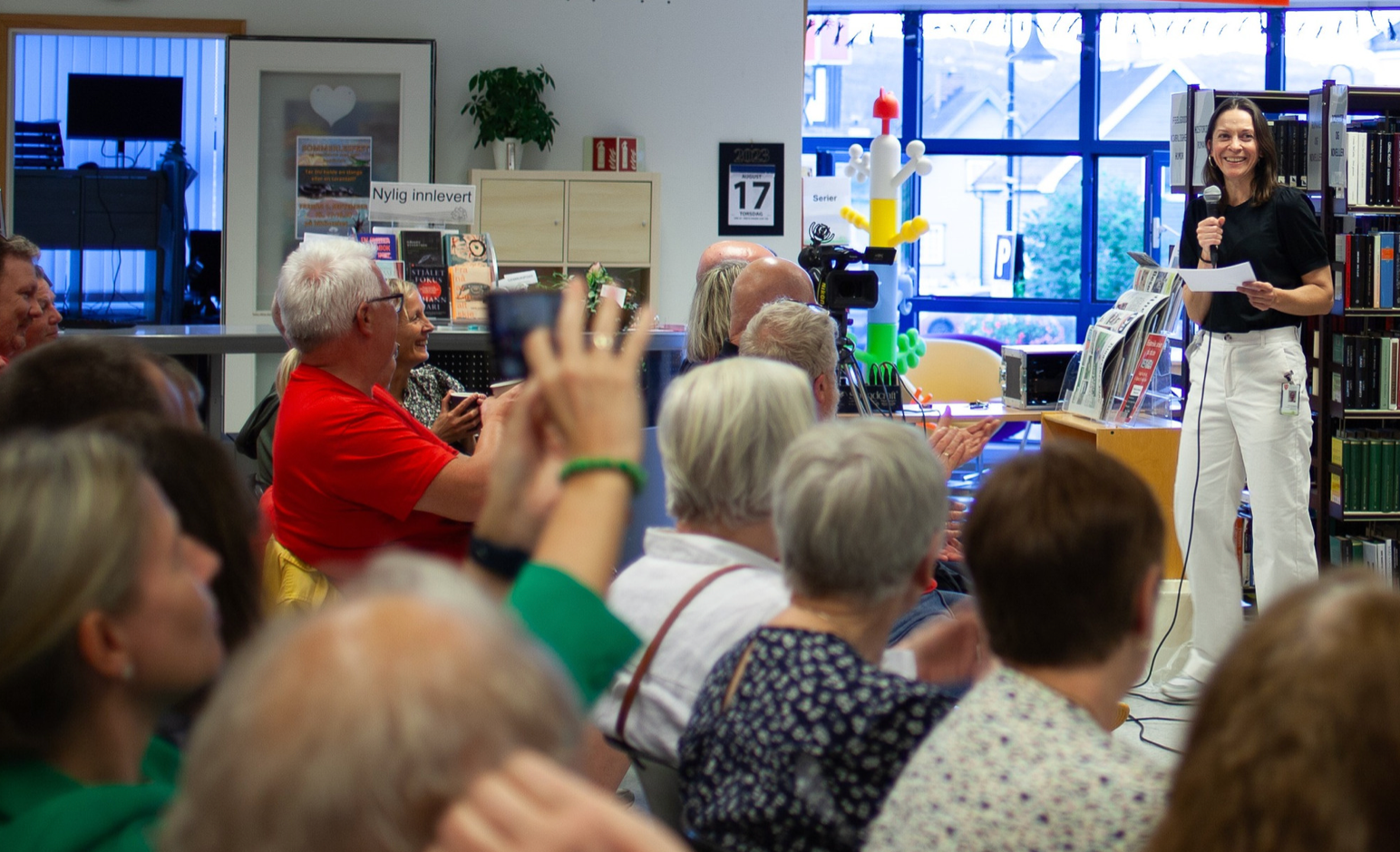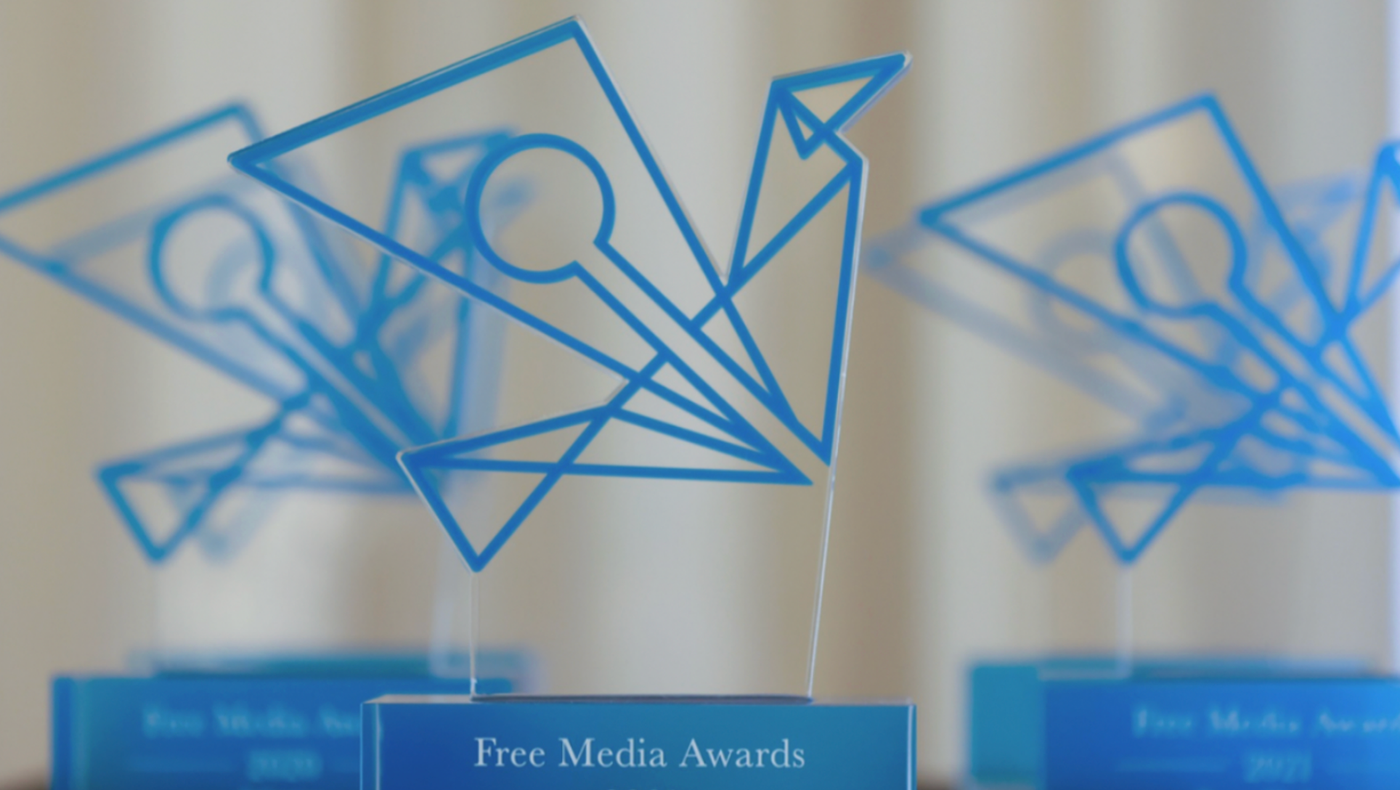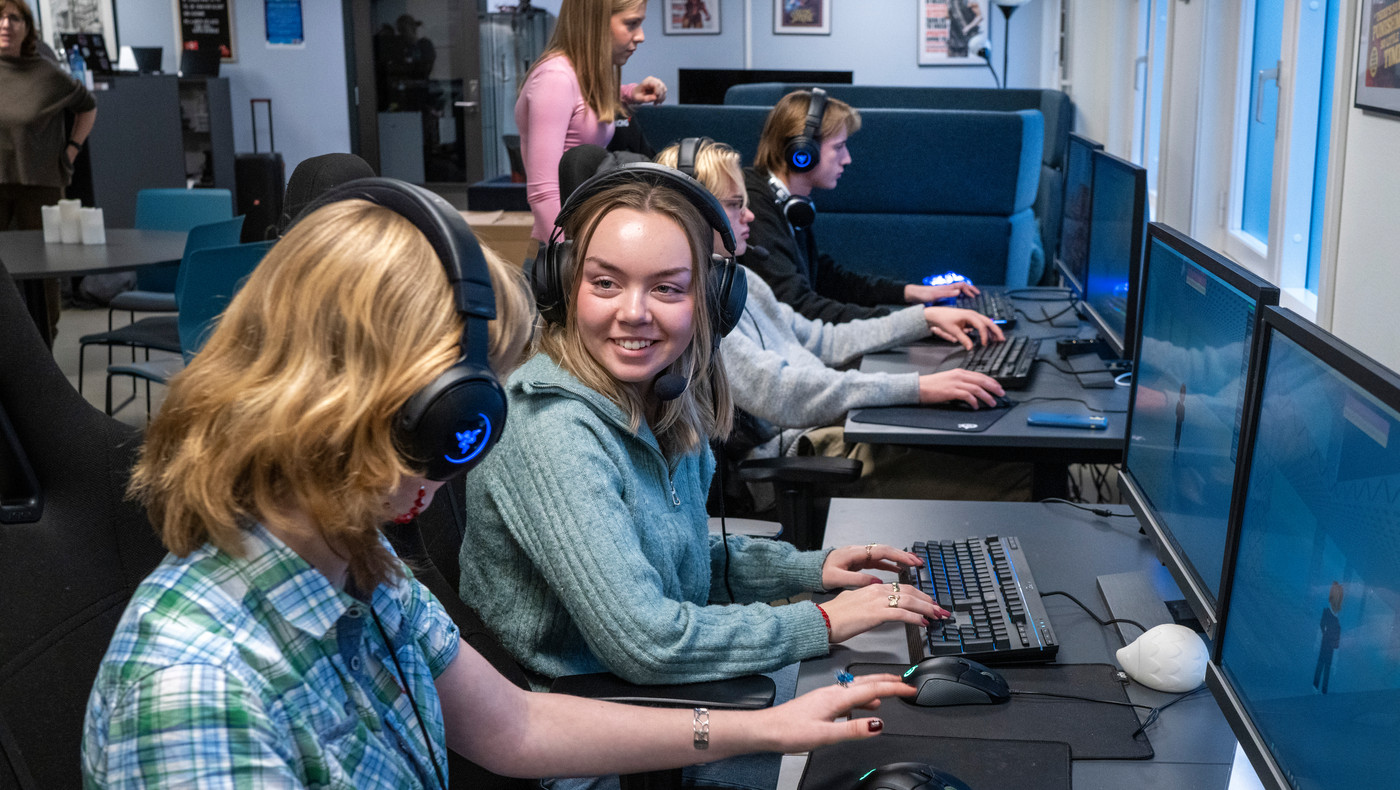Library support from Fritt Ord: Artificial intelligence is the trend of the year
Forty libraries have received funding to arrange debates on Norwegian non-fiction. “Artificial intelligence is the most recurring theme in the pile of applications this year,” reports Oskar Kvasnes. The funding, totalling NOK 2 395 000 is the second highest amount since Fritt Ord began calling for proposals for library activities in 2008.
Forty libraries have received funding to arrange debates on Norwegian non-fiction. “Artificial intelligence is the most frequently recurring theme in our pile of applications this year,” reports Oskar Kvasnes. The funding, totalling NOK 2 395 000, is the second highest amount distributed since Fritt Ord began calling for proposals for library activities in 2008.
“What do today’s Norwegian non-fiction publications tell us about the time we live in?” was one of the questions Fritt Ord asked libraries this spring. The most obvious answer is artificial intelligence.
In 2023, for the 16th consecutive year, Fritt Ord announced grants for promoting new books in Norwegian libraries. The theme was new Norwegian non-fiction publications, and the grants are for NOK 60 000 each. Seventy-six applications were received, 40 of which received funding.
“There were many good applications this year, and that was gratifying,” says Oskar Kvasnes of Fritt Ord. He sees an increase in the level of activities and a rise in applications after a slight decline during the Covid years. Many projects present specific series of new Norwegian non-fiction publications. Others present more concrete topics, such as health, climate, Norwegian-Jewish history and the notion of ‘woke’. “However, artificial intelligence is the most frequently recurring theme in the pile," Kvasnes emphasises.
One of the many venues that will be addressing artificial intelligence this year is the Indre Østfold Library (covering the former municipalities of Askim, Eidsberg, Trøgstad, Tomter and Spydeberg).
“We have registered a desire and need for more knowledge on the topic of artificial intelligence, among patrons and staff alike. With the launch of ChatGPT and similar language models, many of us felt a strong need to understand what artificial intelligence (AI) really is. Many people probably feel that this topic is a bit remote, and it feels like it came upon us rather abruptly," comments Vegard Pettersen of the Indre Østfold libraries.
Arendal Library has managed to recruit Morten Goodwin, author of “AI: the Myth of AI”, who lives in Arendal. They also hope to invite Einar Duenger Bøhn, the man behind the book The Philosophy of Technology, Leonora Bergsjø with Digital ethics: Big data, algorithms and artificial intelligence, Ishita Barua with Artificial Intelligence Saves Lives, about medical innovation, and Inga Strümke with Machines that think: The secrets of algorithms and the road to artificial intelligence.
“When we send an application to Fritt Ord, the entire staff usually submit suggestions for topics and book titles, and this year artificial intelligence was mentioned by several people. We find it important that all aspects are highlighted, including the positive ones. It is usually the negative, scary aspects that get coverage in the media, but we also need to learn about all the wonderful things that AI can bring us," remarks Kristin Johanne Havstad, events manager at the library.
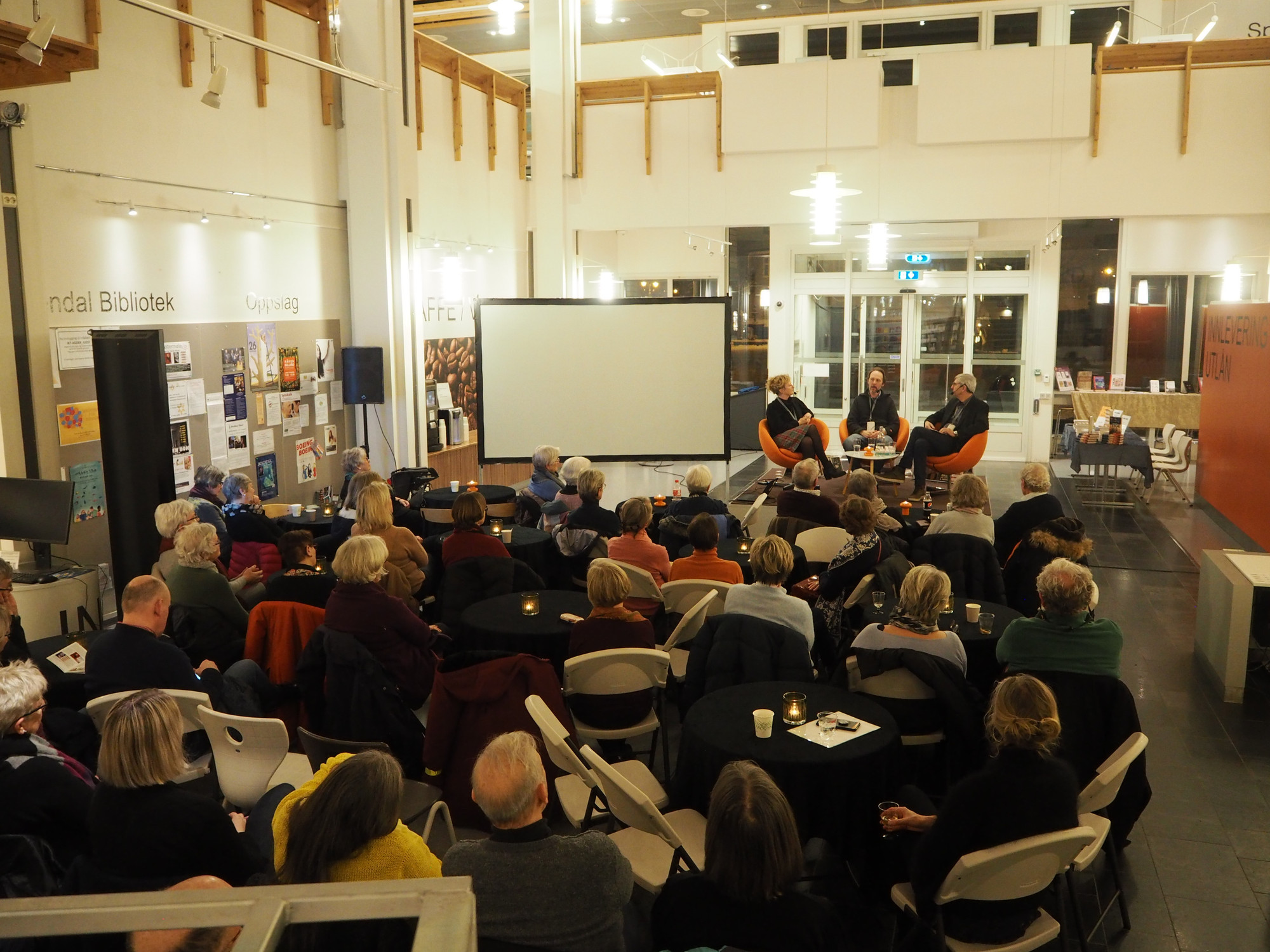
In the autumn of 2023 and throughout 2024, Jevnaker Public Library wants to organise a series of lectures on how technology and artificial intelligence are shaping society and affecting our lives. The ‘wish list’ of authors they want to invite includes Goodwin, Strümke, Øverenget, Duenger Bøhn and Bår Stenvik, author of “The great game: How to survive in the age of the algorithm”. Risør Library will pose a question about regulation under the title ‘Artificial intelligence – can it be tamed?’, where, among other things, the EU’s attempts to enact new legislation will be discussed.
“We hope to create a space for informed conversations about individuals’ routine contact with this technology and about major international players," states Chief Librarian Anita Vestervik. They have invited Steinar Nielsen, a journalist and former editor at NRK who lives in the area, to chair the discussions.
“Libraries are important arenas, and they contribute to both public education and inclusion, at the same time as they address issues. Books are well suited as bases for debates,” he says, “and, not least, books are part of the debate per se, in the form of the ideas they convey and the in-depth knowledge they represent,” adds Nielsen.
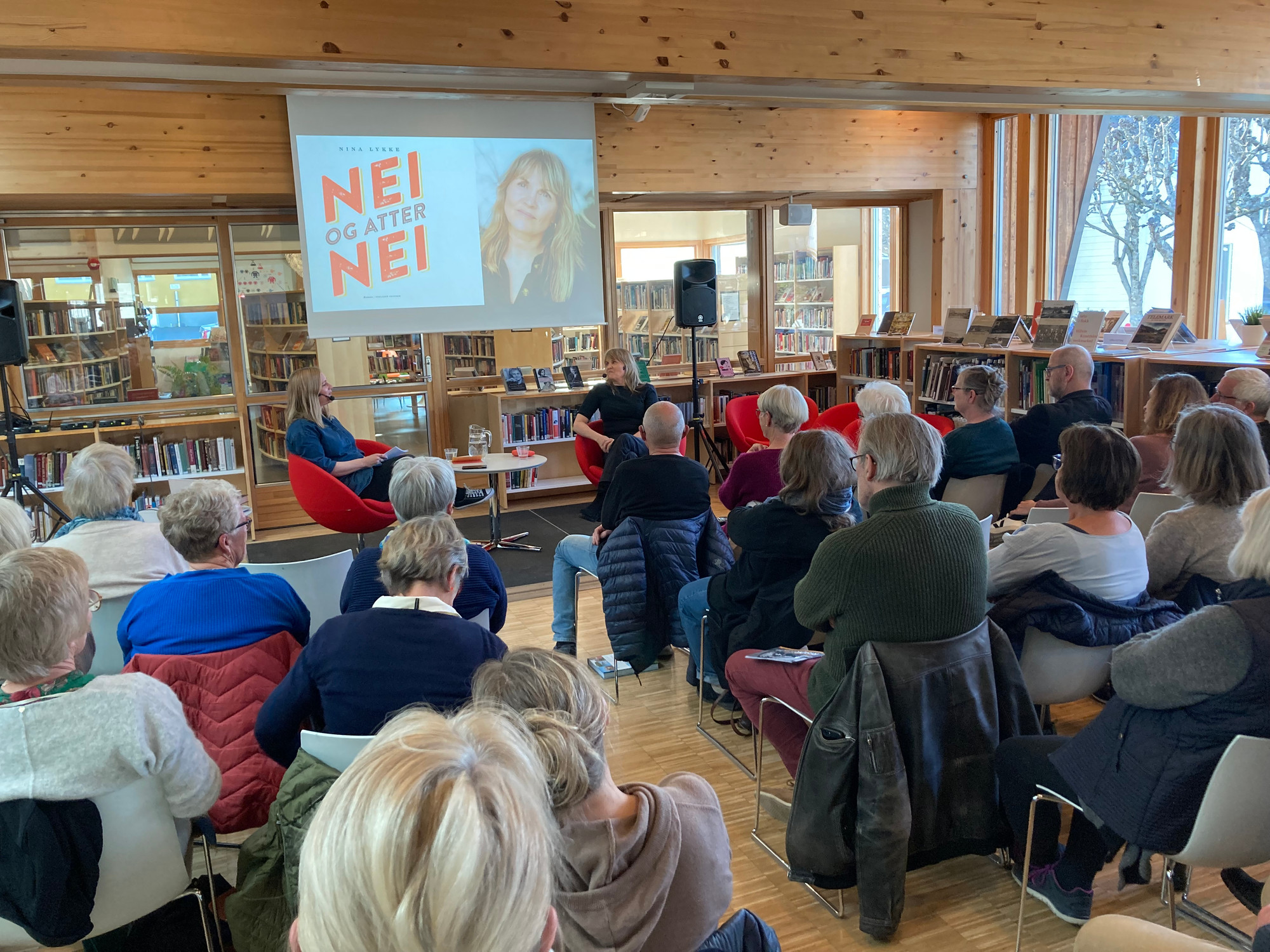
Facts about the call for applications from libraries.
Every year since 2008, Fritt Ord has announced funding for the promotion of literature by libraries. The purpose of the ‘calls for proposals’:nb/prosjekter/bibliotek-og-litteraturhus/biblioteksutlysningen is to strengthen libraries as an arena for promoting books, arousing interest in reading and literary debate, stimulating the innovative promotion of language and literature, and strengthening public libraries as promotional arenas.
The successful projects promote literature through debates, lectures and talks with and by authors, among other things. Some of the calls for proposals are thematic. In 2022, the theme was war and the refugee crisis, in 2021, freedom of expression, and in 2020, economics.
Fritt Ord’s library support has been a long-standing initiative, and this year’s call for proposals is the 16th consecutive invitation since the start in 2008. Since then, Fritt Ord has received 1129 applications for the 15 previous calls for proposals and has granted a total of MNOK 30 in funding to 583 selected projects.
Contact person: Oskar Kvasnes, Fritt Ord, tel. +47 230 14644, email: oskar@frittord.no
See the Norwegian version of the article for the list of libraries that received funding in 2023.
